In the run-up to the summit, the first edition of the Africa-Europe week brought together young people, civil society and the private sector from Africa and Europe to discuss the aspects of the Africa-EU Partnership that matter to them the most: Youth Track + Civil Society and Local Authorities Forums
European Union leaders and African Union member states met in Brussels for the 6th European Union - African Union summit on 17 and 18 February 2022.
The role of Science, Technology and Innovation (STI) in the transformation the FNSSA and the Energy landscapes in Africa remains in the centre of the agenda in the AU-EU R&I Partnership. Structural transformation is required in Africa’s agricultural sector to reallocate economic activities from the lower-end of the FNSSA land and its energy sector, to the higher-end where more value is added which result in better economic returns and improved livelihoods. STI is seen as a conduit to stimulating this required paradigm shift.
European Union leaders and African Union member states met in Brussels for the 6th European Union - African Union summit on 17 and 18 February 2022.
15/02 CSO Session 3: From local to global: African EU cooperation to tackle the interlinked climate, health and biodiversity crises
This session explored how the EU Africa partnership should support African countries to implement ambitious and just climate and biodiversity actions and lead to stronger alliances for success at the international negotiations on climate, health, and biodiversity. It covered COP15 in China, COP27 in Africa, financing, and addressing climate and biodiversity loss impacts on health. It also highlighted the role of CSOs, Indigenous Peoples and local communities for stakeholder participation and governance.
15/02 CSO Session 6: Supporting family farmers and the right to food for all
Speakers noted that food and agriculture receive very little attention in the outputs of the AU-EU Summit despite their importance for the economic, social and cultural fabric of the continent. The session will suggest key points that the AU-EU investment packages should respect to ensure they respond to the interests and rights of small-scale family farmers, rural communities and food insecure urban dwellers.15/02 How can the FNSSA and the CCSE Partnerships contribute to building stronger value chains for sustainable growth and jobs in Africa and in the EU
- organised by two corresponding projects LEAP4FNSSA and LEAP-RE
- Monica Ebele Idinoba from the African Union commission. She is the principal scientific officer at the African Union commission
- Dr. Hans-Joerg Lutzeyer, Senior policy officer at the director in general for research and innovation of the European commission
"The big heading this year will be developing the concept of the International Research Consortium, so that there will be meetings year-long, consultations to establish and International Research consortium which brings efforts together". - Irene Annor-Frempong, FARA - lead coordinator Leap4FNSSA
"By September 2022, we will have a final result on launching the international consortium for the FNSSA under the EU-AU partnership" - Dr. Erick Tambo, head of the pan-African educational program at the United Nations University vice directorate
- Professor Luis Mira da Silva, associate professor at the University of Lisbon and Portugal, PhD in agricultural systems, from University of Reading.
- Professor Babalola vice president of the organization for women in science and development
- Dr. François Moisan, a scientific officer for the LEAP for renewable energy.
"13 project proposals were selected for funding via LEAP-RE Call for proposals" - Dr. Giacomo Falchetta, International Institute for applied systems and energy, and environmental program.
- Mr. Maranga, quality engineer with a particular focus on electrical engineering systems
In January 2021, LEAP-RE launched a ‘Call for AU-EU Collaborative Research and Innovation projects on Renewable Energy’. The Call resulted in 124 applications being received from candidates including compagnies, non-profit associations, research labs, foundations and more from 38 African and European countries. 36 pre-proposals were pre-selected, 32 were submitted, and 13 proposals were finally selected for funding.
13 proposals selected for funding were chosen along 6 thematic lines
(The projects listed below are recommended for funding to the national/regional research funding organisations of LEAP-RE by the Pillar 1 Call 2021 Steering Committee. IMPORTANT: The actual funding of the projects depends on the successful completion of the contract negotiations at the national/regional level.)
1. Renewable energy resources, mapping and modelling
- OASES: Development and Demonstration of a Sustainable Open Access AU-EU Ecosystem for Energy System Modelling. Coordination: Fraunhofer Institute for Energy Economics and Energy System Technology, Germany.
2. End‐of‐life and second‐life management of RE components
- RESTART: REcycling of spent Li-ion batteries and end-life photovoltaic panels: From the development of metal recovery processes to the implementation of a START-up. Coordination: University UCA of Morocco, Morocco.
- SIREVIVAL: Si-based devices for renewable energy: From end of life recycling to revival of photovoltaic modules. Coordination: Université catholique de Louvain, Belgium.
3. Clean cooking and biomass transformation
- SoCoNexGen: Solar Indoor Cooking Systems of the Next Generation. Coordination: Aachen University of Applied Sciences, Germany.
- SOLAR INDUCE: SOLAR INDUCEed domestic clean efficient cooking and refrigeration for off-grid applications in Africa. Coordination: COPRECI S Coop, Spain.
- PyroBioFuel: Sustainable biomass conversion into bioenergy through pyrolysis. Coordination: Cairo University, Egypt.
- SunGari: A modern solar cooking solution for African staples. Coordination: University of Greenwich, UK.
4. New renewable energy resources for Africa
- HyAfrica: Towards a next generation renewable energy source – a natural hydrogen solution for power supply in Africa. Coordination: CONVERGE, Lda, Portugal.
5. New, more efficient PV cells and components
- QDSOC: Environmentally friendly colloidal quantum dots for high performance solar cells. Coordination: Université de Lorraine, France.
- NANOSOLARCELL: Integration of photonic conversion layers based on photoemissive nanostructured materials for improving sunlight harvesting ability of solar cells. Coordination: CNRS-CEMHTI, France.
6. Productive uses and new applications of solar energy
- MG-FARM: Smart stand-alone micro-grids as a solution for agriculture farms electrification. Coordination: Université de Lorraine, France.
- LEDSOL: Enabling clean and sustainable water through smart UV/LED disinfection and SOLar energy utilization. Coordination: Centrul IT pentru Stiinta si Tehnologie, Romania.
- SolChargE: Decentralized Solar Charging System for Sustainable Mobility in rural Africa. Coordination: Technical University of Munich, Germany.
15/02 CSO Session 10: Food Sovereignty and Rural Transformation through Agroecology and Land Justice
This session set out the challenges facing African communities - from the corporate capture of African lands and natural resources to the industrialisation of African food systems and the climate crisis. Key speakers outlined the struggles - for African civil society voices to be heard, for land justice, for women’s land rights, for corporate accountability, and for the transition to agroecology – a people-centred system of sustainable agriculture, combining indigenous knowledge with cutting edge science, working with nature to nourish healthy and resilient communities.
16/02. AfCFTA, A Game Changer
This high level panel looked at how to ensure an effective implementation of the AfCFTA at continental, regional and country level in order to make it a reality for the private sector.17/02. Reflections on a common research and innovation agenda for agroecological transitions of agri-food systems under AU/EU policy frameworks
This session focused on the implications of new EU policy frameworks for Africa-Europe partnerships on the research and innovation (R&I) priorities for agroecological transitions of agri-food systems based on reflections of African stakeholders. The specific objectives of the side event are: - To discuss the implications of the EU Green Deal including the Farm-to-Fork strategy and INTPA priorities for the AU/EU agenda on research and innovation (R&I) for agri-food systems. - To provide input on R&I priorities and actions in African-European partnerships to support agroecological transitions under the sustainability / green agenda for agri-food systems in Africa.
- Opening – Carla Montesi (DG INTPA)
- Keynote I: Implications of the EU Policy Frameworks for R&I priorities for agri-food systems in Africa – Tadas Briedis (DG Health)
- Keynote II: Reflections on R&I priorities for agroecological transitions under the AU/EU Policy Frameworks – Simplice Nouala Fonkou (African Union)
- Brief intermezzo on agroecological transitions – Helena Posthumus (DeSIRA-LIFT)
- Aggry Agumya (FARA)
- Abdou Tenkouano (CORAF)
- Marcela Quintero (One CGIAR)
She presented the One CGIAR Initiative: Transformational Agroecology Across Food, Land, and Water Systems. This Initiative aims to develop and scale agroecological innovations for small-scale farmers, and other agricultural and food-system actors across different socio-ecological contexts in seven low- and middle-income countries in the Global South. For more details, view the full preliminary outline - Mouftao Salami-Odjo (YPARD - President REJEPPAT) - cancelled due to poor connection
- Commentary R&I priorities for FNSSA – Hans-Jörg Lutzeyer (DG RTD)
- Closing – Simplice Nouala Fonkou (African Union)


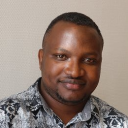
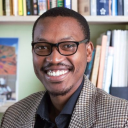
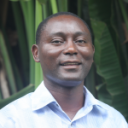
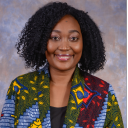



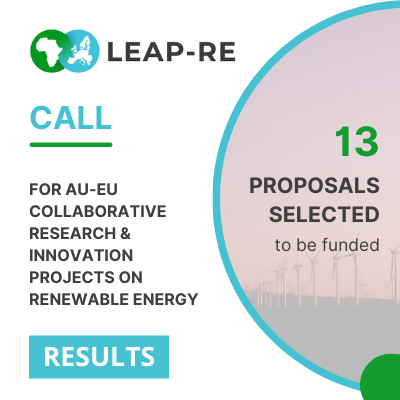
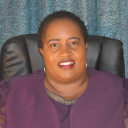

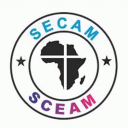
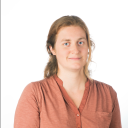
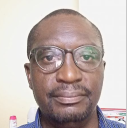
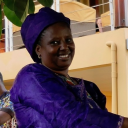


No comments:
Post a Comment